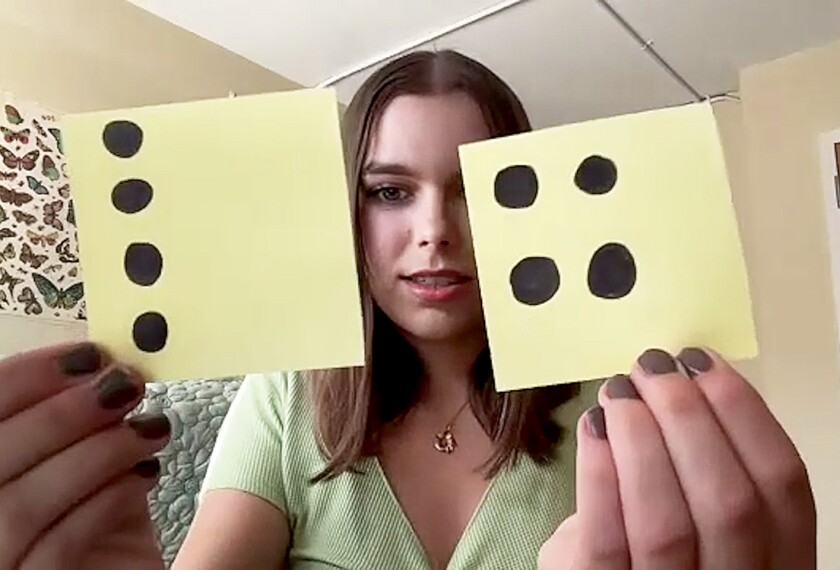Many teachers don’t receive training in their teacher-preparation programs on common learning differences, say experts. And that can leave teachers feeling uncertain about how to best support students in their classrooms who have dyslexia, dysgraphia, or dyscalculia.
Dyslexia affects the ability to read, dysgraphia impacts the ability to write, and dyscalculia impairs the ability to do math.
Given that students with learning differences spend most of their time in general education classrooms, educators should to be prepared to discuss with students why they struggle to read, write, or do math.
Here are five tips on how to do that, according to several experts who spoke with �����ܹ���̳ for a recent special report on understanding learning differences.
1. Set the tone by building relationships
It’s much easier for teachers to support students’ learning if they can hear directly from students what they need. But students aren’t going to open up about their struggles without first having a positive relationship with their teacher, said Benjamin Tillotson, a special education teacher in Salt Lake City.
Teachers should set the tone by talking with students directly about the fact that they have dyslexia and what that means for them. That conversation should be upbeat and forward-looking, focusing on potential progress so that students’ learning differences aren’t only highlighted when they’re failing academically.
“It’s about fostering not only a relationship with a student, but I’m creating a safe environment for them to communicate that they have a disability,” Tillotson said.
2. Create a supportive classroom environment
Students with learning disabilities are going to be more risk-averse if they feel like they will be shamed by classmates when they struggle to do math, read, or write. Teachers play an important role in normalizing neurodiversity, said Rachel Ganz, a pediatric neuropsychologist for the Child Mind Institute, a nonprofit that supports children with mental health and learning disorders.
Ganz recommends that teachers talk to the entire class about how everyone has strengths and weaknesses, using phrases like, “Johnny learns differently than Sarah,” or “Sarah might need to sit in a quiet setting to read.” Explain that students have brains that work differently, Ganz said, just like they have different hobbies, likes, and dislikes.
“Talking about it openly as a class, I think, leads to more acceptance and, hopefully, for students to advocate for themselves,” she said.
If teachers feel like these types of classroom conversations are out of their depth, they should enlist the help of a school psychologist, counselor, or parent of a student with a learning disability to come in and give a talk to the class.
3. Know about common learning differences
Teachers don’t need a neuroscientist’s understanding of how students’ brains are wired, but it is important for them to have a basic understanding of common learning differences, said Edward Hubbard, associate professor in educational psychology at the University of Wisconsin, Madison.
He uses this analogy: “If I go out to the garage and my car doesn’t start, it might be useful for me to know if it’s out of gas or if the battery is dead. Because I’m going to do very different things to fix [it],” he said. “I am not very mechanically inclined, but I have to know a little bit about what is happening under the hood to decide what is going to be the right strategy to solve this problem.”
Not only does this help teachers tailor instruction to their students better, it helps prevent them from unintentionally shaming students.
Robin Zikmund is a mother of a high schooler with dyslexia, dyscalculia, and dysgraphia. She said all educators in a school should be familiar with common neurodivergent disorders and their students’ IEPs. She remembers her son coming home from school “in a puddle” because the music teacher didn’t understand his dyslexia and embarrassed him in front of the class because he couldn’t read music.
4. Don’t fall for ‘neuromyths’
Teachers should be familiar with common myths about learning differences so they are prepared to dispel them among students and don’t perpetuate these myths themselves.
One of the most entrenched neuromyths, said Hubbard, is the belief that students are either visual or auditory learners.
This matters because some research has found that preservice teachers who can separate brain science facts from fiction are also more likely to understand evidence-based teaching practices.
People often falsely believe that children outgrow conditions such as dyscalculia, dysgraphia, and dyslexia—or that dyslexia is more common among boys or only affects English speakers, .
5. Promote a growth mindset, but be honest with students about challenges
Teachers should tell their students that a learning difference is a fact of biology, not the outcome of a lack of intelligence and willpower. But all brains have plasticity and change in response to learning. With time and practice, students will improve.
However, teachers should be careful not to prime students for failure by telling them that while their learning difference will cause them to struggle in some academic pursuits, it will lead them to excel in others. That can backfire, said Holly Lane, the director of the University of Florida Literacy Institute and an associate professor of special education. If students find that they aren’t geniuses or superstars in other areas, they can end up feeling worse.
“People talk about dyslexia being a gift,” Lane said. “I think that’s a problem, because for a lot of kids there’s nothing gift-like about it. It can be a real challenge.”









